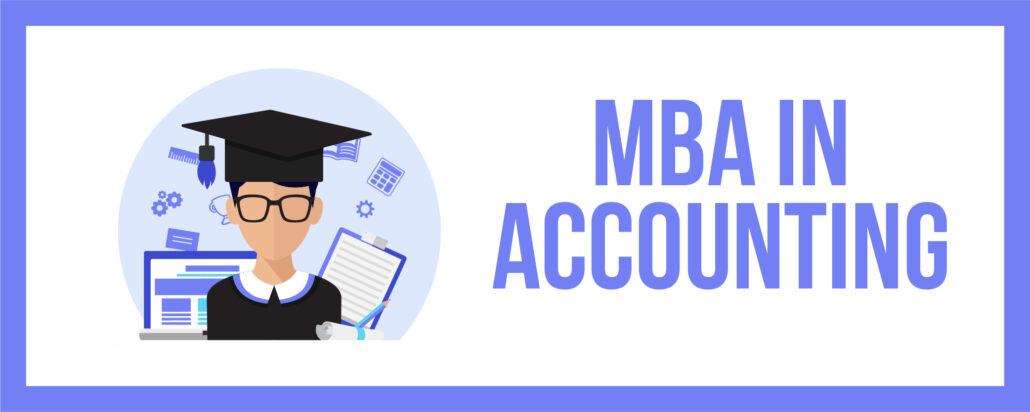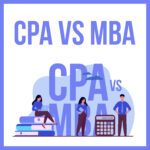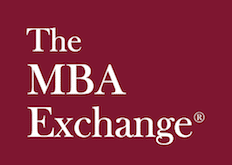
The outlook for management positions is expected to grow by about 9% by 2030. If you want to be on this fast track, buckle up.
An MBA in accounting could be your golden ticket to a thriving career in this high-demand field.
But hold on… before you drive off into the MBA fast lane, it’s essential to know what this degree entails, its benefits, and the potential challenges you may face.
The truth is this accounting degree can be a game changer for professionals seeking to advance their careers in the world of finance and business. But, unfortunately, it can also be an expensive and time-consuming endeavor.
In this comprehensive guide, we’ll walk you through everything you need to know about an MBA in accounting, from the diverse skill set you’ll acquire to tips for success in the program.
Let’s get started, shall we?
What Is an MBA in Accounting?
An MBA in Accounting is a Master of Business Administration degree with a specialization or concentration in accounting.
This advanced degree program combines core business administration courses focusing on accounting principles and practices. It is designed for professionals seeking to develop a comprehensive understanding of business functions while acquiring specialized accounting skills.
In an MBA in Accounting program, students learn essential management concepts such as marketing, operations, strategic management, finance, and economics. Additionally, they study accounting-specific topics like financial accounting, managerial accounting, financial statement analysis, taxation, and auditing.

The program aims to develop well-rounded business professionals with a strong foundation in accounting principles, preparing them for leadership roles in the finance and accounting sectors.
An MBA in Accounting equips students with the technical knowledge required for a successful accounting career and enhances their critical thinking, problem-solving, and communication skills.
Graduates of MBA in Accounting programs are well-prepared for various career opportunities, such as financial managers, financial analysts, budget analysts, and chief financial officers. The degree can also help prepare students for professional certifications like the Certified Public Accountant (CPA) designation, further enhancing their career prospects.
Why Pursue an MBA in Accounting?
Pursuing an MBA in accounting offers numerous benefits, including:
- Enhanced career opportunities: An accounting MBA degree can open doors to leadership positions, such as chief financial officer (CFO), financial analyst, and financial manager.
- Increased earning potential: MBA programs with an accounting specialization often lead to higher salaries than those with only an undergraduate degree in accounting.
- Professional growth: The accounting MBA program equips students with advanced accounting skills and a solid understanding of business administration, making them more marketable in the business world.
- Networking opportunities: Business schools provide students with the chance to connect with alumni, faculty, and industry professionals, creating a valuable network for future career advancement.
Course Structure and Curriculum
The curriculum of an MBA in accounting typically includes a combination of core business administration courses and specialized accounting courses. These courses are designed to provide students with a comprehensive understanding of business functions and the accounting knowledge necessary to succeed in various roles.
Core Courses

Core courses in an MBA program cover essential business topics such as marketing management, operations management, strategic management, and financial management. These courses help students build a strong foundation in business administration and develop the skills needed to excel in the business world.
Elective Courses
The accounting concentration within the MBA program offers various elective courses, such as financial accounting, managerial accounting, financial reporting, financial statement analysis, and tax accounting. These courses allow students to tailor their education to their specific interests and career goals.
Top 10 Business Schools for MBA in Accounting
Several prestigious business schools offer top MBA programs with an accounting concentration. Here are our top ten schools with the best MBA accounting programs.
- The Wharton School at the University of Pennsylvania: Known for its strong finance and accounting programs, Wharton offers a flexible curriculum that allows MBA students to customize their accounting concentration based on their career goals.
- The Tuck School of Business at Dartmouth College: Tuck’s MBA program emphasizes collaboration, leadership, and global experiences, with several accounting and finance electives available for students.
- The Kellogg School of Management at Northwestern University: Kellogg’s MBA program offers an accounting concentration with courses covering financial reporting, managerial accounting, and taxation, preparing students for leadership roles in finance and accounting.
- The Booth School of Business at the University of Chicago: Booth’s MBA program features a flexible curriculum focusing on finance and accounting, allowing students to delve deep into accounting principles, financial statement analysis, and valuation techniques.
- The Sloan School of Management at MIT: Sloan’s MBA program offers a finance track, which includes several accounting electives, such as financial statement analysis, management accounting, and taxation, providing students with the accounting knowledge required for a successful career in finance.
- The Stern School of Business at New York University: NYU Stern offers an MBA program specializing in accounting, featuring courses in financial accounting, managerial accounting, and taxation, helping students develop a strong foundation in accounting principles and practices.
- The Fuqua School of Business at Duke University: Fuqua’s MBA program offers a finance concentration, with several accounting courses available for students interested in enhancing their accounting knowledge, such as financial statement analysis, cost management, and corporate tax strategy.
Researching and comparing the different accounting MBA programs is essential to determine which one best aligns with your career goals and aspirations.
Steps to Get into the Best MBA Accounting Program
Getting into a top MBA accounting program can be a challenging but rewarding journey. Following these steps can improve your chances of admission to your dream business school.
- Research and shortlist schools: Begin by researching various MBA accounting programs and create a list of schools that align with your career goals, interests, and preferences. Consider factors such as program reputation, location, curriculum, faculty, and alumni network.
- Evaluate your qualifications: Assess your academic background, work experience, and extracurricular activities to determine if you meet the requirements for your target programs. Identify any gaps or weaknesses in your profile and take steps to address them.
- Prepare for entrance exams: Most MBA programs require applicants to take the Graduate Management Admission Test (GMAT) or the Graduate Record Examination (GRE). Study for these exams well in advance, focusing on the quantitative and verbal sections to achieve competitive scores.
- Polish your resume: Update your resume to highlight your achievements, skills, and work experience relevant to an MBA in accounting. Focus on quantifiable results and accomplishments demonstrating your potential for success in the program and your future career.
- Craft a compelling application: Write a strong application essay that showcases your motivations for pursuing an MBA in accounting, your career goals, and why you believe the chosen program is a good fit for you. Be sure to demonstrate your passion for accounting and your commitment to professional growth.
- Obtain strong letters of recommendation: Request letters of recommendation from supervisors, colleagues, or professors who can speak to your abilities, achievements, and potential for success in an MBA accounting program.
- Prepare for interviews: Some business schools may require interviews as part of the admissions process. Practice your interview skills, focusing on effectively communicating your goals, experiences, and fit with the program.
MBA Admissions Consultants: How Can They Help?
MBA admissions consultants can play a significant role in helping you gain admission to your dream MBA accounting program. These professionals have extensive experience and knowledge of the business school admissions process, and they can provide valuable guidance on various aspects of your application.
- Personalized strategy: Admissions consultants can help you develop a customized strategy for your application, considering your unique strengths, weaknesses, and goals.
- School selection: Consultants can assist you in narrowing down your list of target schools based on your profile, preferences, and career aspirations.
- Application review: Admissions consultants can review your application materials, such as your resume, essays, and letters of recommendation, providing feedback and suggestions for improvement.
- Interview preparation: Consultants can conduct mock interviews, helping you hone your skills and build confidence for the actual interview.
- Navigating the admissions process: Admissions consultants can offer guidance and support throughout the entire process, from application planning to decision-making and acceptance.
By working with an MBA admissions consultant, you can maximize your chances of admission to a top MBA accounting program and set yourself up for success in your future career.
Career Opportunities

An MBA in accounting can lead to a variety of rewarding career paths, including:
- Accounting Manager: Responsible for overseeing and managing a company’s accounting department, ensuring accurate financial reporting and compliance with accounting principles.
- Financial Analyst: Analyzes financial data and recommends investment decisions, budgeting, and financial planning.
- Management Consultant: Assists organizations in improving their performance by analyzing existing business practices and providing strategic recommendations for change.
- Corporate Controller: Oversees the financial activities of a company, including financial reporting, budgeting, and financial analysis.
- Tax Manager: Manages a company’s tax strategy and ensures compliance with tax laws and regulations.
Advantages of an MBA in Accounting
An MBA in accounting offers several advantages over other accounting degrees, including:
- Comprehensive business knowledge: Besides accounting expertise, an MBA in accounting provides students with a well-rounded understanding of business administration, making them more versatile and valuable to employers.
- Advanced career opportunities: With an MBA in accounting, professionals can access higher-level job roles and enjoy greater career advancement potential.
- Networking opportunities: Business schools offer extensive networking opportunities, helping students build relationships with industry professionals and alumni, which can benefit their future careers.
- Higher earning potential: MBA graduates with an accounting concentration often command higher salaries compared to those with just an undergraduate degree in accounting.
Potential Drawbacks of an MBA in Accounting
Despite the many benefits, there are some potential drawbacks to consider when pursuing an MBA in accounting:
- Cost: MBA programs can be expensive, and students may need to take on significant debt to finance their education.
- Time commitment: An MBA in accounting typically takes two years to complete, during which time students may need to balance their studies with work and personal commitments.
- Competitive job market: While an MBA in accounting can open doors to advanced career opportunities, the job market can be competitive. There is no guarantee of immediate success upon graduation.
Online vs. Traditional MBA in Accounting
Many business schools now offer online MBA programs in accounting, providing students with greater flexibility and the opportunity to complete their degrees while continuing to work. Online MBA programs often have the same curriculum as traditional programs but are delivered through a virtual platform.
Advantages of an online MBA program in accounting include:
- Flexibility: Online programs allow students to complete coursework at their own pace and on their schedule, making it easier to balance work, school, and personal commitments.
- Accessibility: Online programs enable students to access coursework from anywhere with an internet connection, eliminating the need to relocate to school.
- Lower cost: Online programs are often less expensive than traditional programs, as students do not need to pay for housing, transportation, or other on-campus expenses.
However, some students may prefer the traditional MBA experience, which offers in-person interaction with professors and peers and access to on-campus resources and networking events.
Financing Your MBA in Accounting
There are several options available for financing an MBA in accounting, including:
Scholarships and Grants
Many business schools offer scholarships and grants to eligible students based on academic merit, financial need, or other factors. Additionally, external organizations and professional associations may also provide scholarships for students pursuing an MBA in accounting. Researching and applying for these financial awards can help reduce the program’s overall cost.
Student Loans
Students can apply for federal or private student loans to cover the cost of their MBA in accounting. However, it’s important to compare interest rates, repayment terms, and eligibility requirements before taking on any student loan debt.
Employer Assistance
Some employers offer tuition reimbursement programs or other financial assistance for employees pursuing an MBA in accounting. Check with your employer to see if they provide any support for continuing education.
Conclusion
An MBA in accounting is a valuable investment for professionals looking to advance their careers in the world of finance and business. By carefully considering the advantages, potential drawbacks, and various program options, you can make an informed decision about pursuing this rewarding career path.
FAQs
An MBA in accounting can be worth it for professionals seeking advanced career opportunities, increased earning potential, and a well-rounded understanding of business administration. However, weighing the benefits against the potential drawbacks, such as cost and time commitment, is important.
Most MBA in accounting programs takes two years to complete, although some accelerated programs may be completed in as little as one year. In addition, online MBA programs often offer greater flexibility, allowing students to complete the program at their own pace.
An MBA in accounting combines core business administration courses focusing on accounting principles and practices, providing a comprehensive understanding of business functions. A Master’s in Accounting, on the other hand, focuses solely on accounting topics and is designed for those who want to specialize in the field.
Yes, many MBA in accounting programs accept students with a bachelor’s degree in any field. However, some programs may require prerequisite courses in accounting or related fields for students without an accounting background.
No, the CPA exam is not a requirement for enrolling in an MBA in accounting program. However, the knowledge and skills gained through an MBA in accounting can help prepare students for the CPA exam and a successful accounting career.
An online MBA program in accounting offers the same core courses and accounting specialization as a traditional, on-campus program. The main difference is the flexibility and convenience of studying online, allowing students to balance work and personal commitments while pursuing their accounting MBA degree. Online programs often use advanced technology to facilitate interaction between students and instructors, making the learning experience more accessible for those who cannot attend classes in person.
Yes, an MBA in accounting can help prepare you for the CPA exam and a career in the accounting profession. While the specific requirements for becoming a CPA vary by state, most states require a minimum of 150 credit hours of education, including a bachelor’s degree and specific accounting coursework. An accounting master’s degree or an MBA with an accounting specialization can provide the additional credit hours and accounting knowledge needed to meet these requirements.
Core courses in an MBA in accounting program usually cover a range of business and accounting topics, such as financial accounting, managerial accounting, financial statement analysis, corporate finance, marketing management, operations management, and strategic management. These courses provide a solid foundation in business administration while developing specialized accounting skills needed for a successful career in the accounting profession.
An MBA in accounting focuses on a broader range of business and management topics, with a specialization in accounting. This degree is designed for those who want to comprehensively understand business administration while developing their accounting skills. On the other hand, a Master’s in Accounting is a more specialized degree, focusing exclusively on accounting topics and preparing students for careers as certified public accountants or other accounting professionals.
No, you do not need a bachelor’s degree in accounting to pursue an MBA in accounting. Many MBA programs accept students with a bachelor’s degree in any field. However, some programs may require prerequisite courses in accounting or related fields for students without an accounting background. If you have a bachelor’s degree in a different field, you may need to complete additional coursework before enrolling in an MBA accounting program.
Bryce Welker is an active speaker, blogger, and regular contributor to Forbes, Inc.com, and Business.com where he shares his knowledge to help others boost their careers. Bryce is the founder of more than 20 test prep websites that help students and professionals pass their certification exams.












